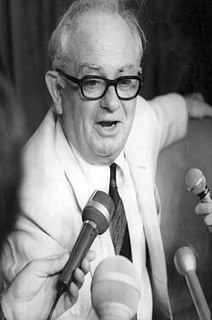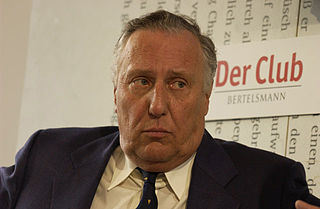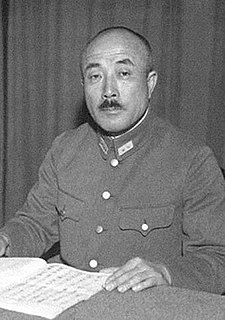A Quote by William J. Duiker
When he served in China during World War II, [Ho Chi Minh] learned about Mao Zedong's tactics of guerrilla war against the Japanese (and later against Chiang Kai-shek's forces), and he translated some of Mao's works into Vietnamese. But it is clear that his own ideas on how to counter the enemy ran along the same lines.
Related Quotes
Mao Zedong Thought was not created by Comrade Mao alone - other revolutionaries of the older generation played a part in forming and developing it - but primarily it embodies Comrade Mao's thinking. Nevertheless, victory made him less prudent, so that in his later years some unsound features and unsound ideas, chiefly "Left" ones, began to emerge. In quite a number of instances he went counter to his own ideas, counter to the fine and correct propositions he had previously put forward, and counter to the style of work he himself had advocated.
On many occasions in the late 1950s and 1960s, [Ho Chi Minh's] ideas were apparently ignored by those who felt that his approach was too naive and prone to compromise. The outbreak of open warfare with the French and later with the United States was in effect a sign of the failure of Ho Chi Minh to achieve his objective to fight and win at low cost.
The British left intermittently erupts like a pustule upon the buttock of a rather good country. Seventy years ago it opposed mobilisation against Adolf Hitler and worshipped the other genocide, Josef Stalin. It has marched for Mao, Ho Chi Minh, Khrushchev, Brezhnev and Andropov. It has slobbered over Ceausescu and Mugabe. It has demonstrated against everything and everyone American for a century.
Ho Chi Minh was well aware that the enemy possessed more firepower than did his own forces, and sought to use what he viewed as the superior political and moral position of his own revolutionary movement as a trump card to defeat a well-armed adversary. These ideas were originally generated during his early years as a revolutionary in the 1920s and 1930s, and continued to influence his recommendations in the wars against the French (1946-1954) and the United States (1959-1965).
The influence of Sun Tzu on other North Vietnamese military strategists is harder to answer. Certainly many of the key leaders in Hanoi were aware of Sun Tzu and made use of his ideas - Vo Nguyen Giap applied many of these ideas in seeking out weak elements in the enemy's defenses, as did Truong Chinh, whose famous treatise, The Resistance Will Win (1947), cited the ideas of Mao Zedong as a model for the North Vietnamese to follow.
Not only did Mao Zedong Thought lead us to victory in the revolution in the past; it is - and will continue to be - a treasured possession of the Chinese Communist Party and of our country. That is why we will forever keep Chairman Mao's portrait on Tiananmen Gate as a symbol of our country, and we will always remember him as a founder of our Party and state. Moreover, we will adhere to Mao Zedong Thought. We will not do to Chairman Mao what Khrushchev did to Stalin.

























